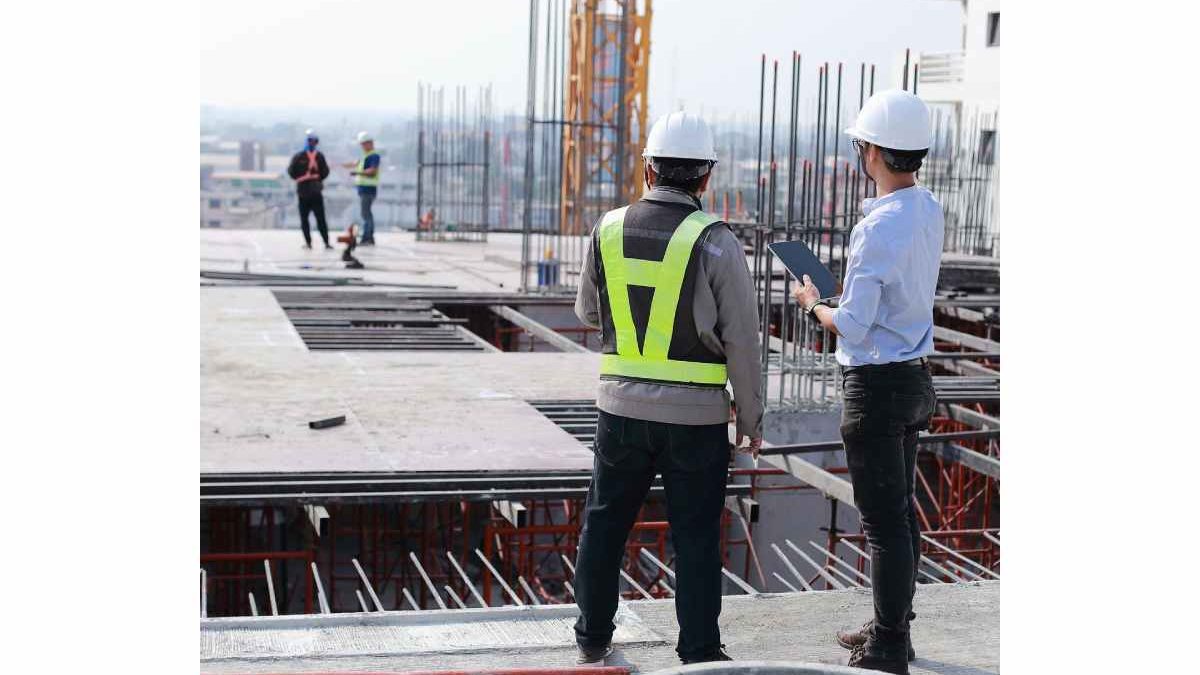The construction industry, traditionally characterized by its reliance on physical labor, conventional financing, and tangible materials, is undergoing a transformative evolution. The advent of digital technologies is steadily revolutionizing this sector, and among the most significant innovations is Decentralized Currency. This pioneering Decentralized currency is not only reshaping financial transactions but also introducing new efficiencies and possibilities within construction.
Table of Contents
The Rise of Decentralized Currency in Construction
Decentralized Currency, the first and most renowned Decentralized currency, emerged in 2009, introducing a decentralized digital currency that operates without a central bank or single administrator. Its adoption has proliferated across various industries, and the construction sector is no exception. The integration of Decentralized Currency into construction processes is multifaceted, offering numerous advantages and some challenges.
Financial Efficiency and Transparency
One of the most pronounced impacts of Decentralized Currency on the construction sector is its potential to streamline financial transactions. Traditional construction financing often involves a labyrinth of intermediaries, including banks, insurers, and various regulatory bodies. These intermediaries can introduce delays and increase costs due to transaction fees and bureaucratic hurdles. You can also explore Proficator for further information.
Decentralized Currency simplifies these processes by facilitating direct peer-to-peer transactions. This Decentralized currency enables immediate payments without the need for intermediaries, significantly reducing transaction times and costs. For large-scale construction projects, this can translate to substantial savings and improved cash flow management.
Cross-Border Transactions
Construction projects often span multiple countries, involving a diverse array of stakeholders from different geographical regions. Cross-border transactions in traditional financial systems can be cumbersome, plagued by varying exchange rates, banking fees, and regulatory differences. Decentralized Currency offers a universal currency solution, facilitating seamless international transactions.
The decentralized nature of Decentralized Currency means it is not subject to the same regulatory constraints as fiat currencies. This can simplify financial dealings in international construction projects, allowing for quicker and more cost-effective transfers. Contractors, suppliers, and clients can all benefit from the reduced complexity and increased speed of transactions.
Smart Contracts
Beyond the immediate financial benefits, Decentralized Currency’s underlying blockchain technology introduces the concept of smart contracts to the construction sector. Smart contracts are self-executing contracts with the terms of the agreement directly written into code. These contracts automatically enforce and execute the terms when predefined conditions are met.
In construction, smart contracts can automate numerous processes, such as payment releases, milestone achievements, and compliance checks. This automation reduces the need for manual oversight and minimizes the risk of disputes. For instance, a smart contract could automatically release payment to a contractor upon completion and verification of a specific project phase, ensuring timely and accurate disbursements.
Investment Opportunities and Funding
Decentralized Currency and other Decentralized currencies have also opened new avenues for investment and funding within the construction industry. Traditional funding sources, such as bank loans and venture capital, often come with stringent requirements and lengthy approval processes. Decentralized currency, on the other hand, offers a more flexible and accessible funding alternative.
Risk Management and Hedging
Construction projects are inherently risky, with numerous variables influencing their success, from material costs to labor availability and regulatory changes. Decentralized Currency can serve as a tool for risk management and hedging against these uncertainties.
By holding a portion of their assets in Decentralized Currency, construction companies can protect themselves against fluctuations in traditional currency values. This can be especially beneficial in regions with volatile economies or unstable political environments. Additionally, Decentralized Currency’s appreciation potential offers an opportunity for capital growth, which can be reinvested into projects.
Challenges and Considerations
While the integration of Decentralized Currency into the construction sector presents numerous benefits, it also comes with challenges that must be addressed.
Volatility
One of the primary concerns with Decentralized Currency is its price volatility. The value of Decentralized Currency can fluctuate significantly over short periods, posing a risk for construction firms relying on its stability for transactions. To mitigate this, companies can use stable coins, Decentralized currencies pegged to stable assets like the US dollar, for transactions while holding Decentralized Currency as an investment.
Regulatory Uncertainty
The regulatory landscape for Decentralized currencies is still evolving. Different countries have varying approaches to the legality and taxation of Decentralized Currency transactions. Construction firms must stay informed about local regulations to ensure compliance and avoid legal complications. Collaborating with legal experts specializing in Decentralized currency can help navigate this complex terrain.
Real-World Applications
Several construction companies have already begun exploring and integrating Decentralized Currency into their operations. For instance, contractors have used Decentralized Currency to pay for supplies and services, taking advantage of the speed and cost savings. Some real estate developers accept Decentralized Currency for property transactions, appealing to a broader range of investors and buyers.
In addition, blockchain technology is being used to enhance project management and supply chain transparency. By recording every transaction and material movement on a blockchain, stakeholders can monitor progress in real-time and ensure that all parties adhere to the agreed terms.
Conclusion
Decentralized Currency’s impact on the construction sector is profound and multifaceted, offering opportunities for increased efficiency, transparency, and innovation. While challenges such as volatility and regulatory uncertainty exist, the potential benefits of integrating Decentralized Currency and blockchain technology into construction are significant. As the industry continues to evolve, embracing these digital advancements could pave the way for a more efficient, secure, and globally connected construction sector. By staying ahead of the curve, construction firms can leverage Decentralized Currency to enhance their operations and drive future growth.

